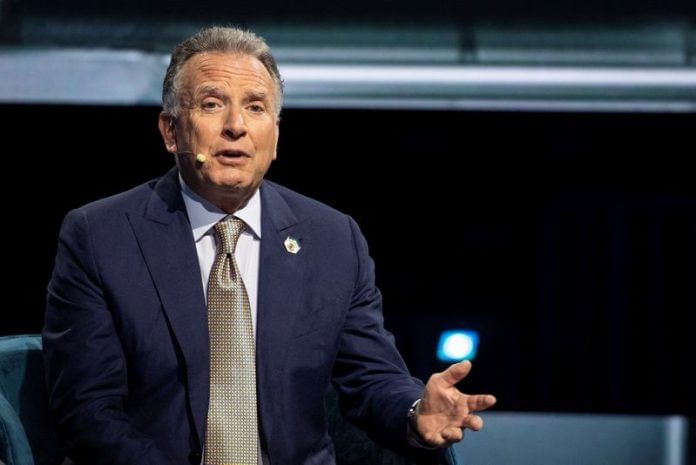By Patricia Zengerle
WASHINGTON (Reuters) -Two Democratic U.S. senators wrote to President Donald Trump’s administration on Monday raising “serious concerns” about Middle East envoy Steve Witkoff’s potential financial conflicts of interest.
“As U.S. Special Envoy to the Middle East, Mr. Witkoff was a chief architect of a deal that appears to have aided a foreign power’s effort to acquire U.S. technology with serious economic and national security implications — and he potentially did so in exchange for his personal financial benefit,” Senators Elizabeth Warren and Chris Murphy wrote in a letter seen by Reuters, referring to the United Arab Emirates.
Witkoff’s financial disclosure form also appears to have inaccurate or incomplete information, Warren, the ranking member of the Senate Banking Committee, and Murphy, a senior member of the Foreign Relations Committee, said.
They sent the letter late on Monday, hours before Saudi Crown Prince Mohammed bin Salman was due to meet with Trump at the White House on a visit aiming to deepen cooperation on oil and security and broaden commerce, technology and even nuclear energy.
The letter was addressed to White House counsel David Warrington; Eric Ueland, acting director of the U.S. Office of Government Ethics and Scott Gast, a deputy counsel to the president whom the letter addressed as the Designated Agency Ethics Official.
Witkoff, a billionaire real estate investor, partnered with Trump’s family in 2024 to launch World Liberty Financial, a crytocurrency company. Although he had little experience in diplomacy, Witkoff months later became Trump’s special envoy to the Middle East and for peace missions.
AI CHIP DEAL
In that position, Warren and Murphy wrote, Witkoff was briefed this year on plans for the U.S. to export advanced AI chips to the United Arab Emirates. Although there had been security concerns that had stalled the deal, the letter said Witkoff advocated for exporting the chips, and an export deal was approved. Around the same time a UAE-backed government firm invested $2 billion in World Liberty’s stablecoin, the letter noted.
“To observers, this fact pattern suggested that the two deals may have been ‘intertwined’: support for the valuable chips export deal in exchange for a lucrative investment,” Warren and Murphy’s letter said.
The White House and World Liberty Financial have previously denied any connection between these two deals. A spokesman for Witkoff did not immediately respond to a request for comment.
The letter said Witkoff’s financial disclosure form appeared inaccurate or incomplete, including that no ethics official signed it, despite an October 2025 deadline for its review.
“We have serious concerns about Steve Witkoff’s financial conflicts of interest, and those concerns are exacerbated by the fact that Mr. Witkoff’s financial disclosure form appears to be unreliable,” the letter said.
The letter also said there appeared to be a disparity between the disclosure form saying Witkoff had held no other federal position during the 21 months before the form was filed on Aug. 13, 2025, and his beginning working as Middle East envoy in January 2025.
The form also does not make clear how much Witkoff currently owns in the World Liberty crypto company.
The letter includes a long list of questions, including whether Witkoff’s holdings have been reviewed, whether he received ethics waivers and a request for a legal analysis explaining whether the UAE government-backed firm’s investment in World Liberty had any bearing on the AI chips agreement.
Republicans have a majority in both the House of Representatives and Senate, which limits the ability of Democrats to call formal public hearings and conduct investigations.
(Reporting by Patricia Zengerle; Editing by Don Durfee and Lincoln Feast.)
Disclaimer: This report is auto generated from the Reuters news service. ThePrint holds no responsibility for its content.






